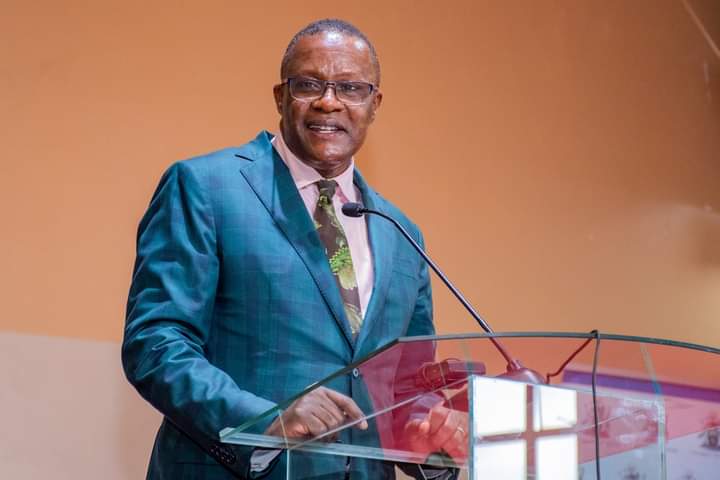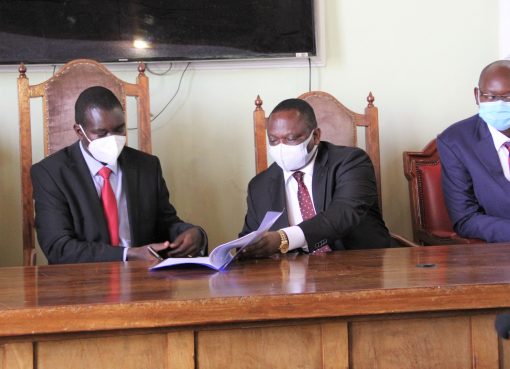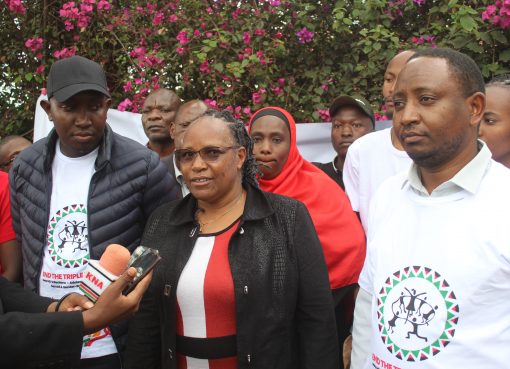The Cabinet Secretary (CS), Ministry of Information, Communications and the Digital Economy Eliud Owalo has urged institutions of higher learning across the country to invest in ICT systems and automate their operations.
Owalo termed the universities’ automation process in the provision of services as very much similar to what the government is doing as far as the digital transformation agenda is concerned.
He said that ICT is not just an enabler to all assets of the plan but is also a critical success factor for the government to move forward.
The CS made these remarks during the launch of the University of Nairobi (UoN) ICT systems under the theme ‘Making the University Vibrant and Sustainable through Digitalization’.
In regards to what the University is doing starting with the 155 Wi-Fi hotspot, Owalo revealed that the Ministry of ICT is rolling out 100,000km of fiber optic cable to ensure that all those in the country that are not connected to internet get a reliable and stable internet and the ministry is also already on the trajectory of holding up the 100,000km of connecting fiber to all parts of the country.
According to the CS, the Ministry is also setting up a total of 25,000 free Wi-Fi hotspots which are intended for what the university is doing; so that the students can have hotspots around the hostels to connect to the online platform around the university from the comfort of their hostels to join the classes.
Further, he maintained that the Ministry’s target is to ensure that all government processes are digitalized so that Kenyans could consume services in the comfort of wherever they are in which aligns with the digitalization of the university process.
The CS observed that in 2022, the government had only 350 services in the eCitizen platform unlike today where 15,462 services are already fully digitalized.
He said the remaining services are partially digitalized and all government services will be available virtually on the platform for the citizens to consume the services wherever they are.
“Under thematic area of digital skilling, if we have public digital infrastructure in place, correspondingly, we must ensure that there is a commensurate level of skilling among the Kenyan population,” stated Owalo.
He added that the Ministry has already rolled out an ambitious Jitume digital hub platform targeting youth members of the Kenyan society including but not limited to those in institution of higher learning, and also embarked on rolling Jitume hubs to 185 TVETS spread fully in the country to ensure youth get digital skills and access to digital jobs.
Additionally, the CS noted that the government, in a proactive manner, is training the youths and going an extra mile, connecting them to global technological companies so that they could leverage on the opportunities in the way of digital jobs.
Owalo announced that the Ministry has partnered with the legislature and is working together with Members of Parliament (MP) to facilitate a review of the Constituency Development Fund (CDF) Act to enable MPs to spend 3% of annual CDF allocation on establishing the facilities in which to deploy digital devices.
He said that the National government is subsequently providing devices, connecting the internet, facilitating the training for free and connecting youths to the digital job where it has already trained 390,000 youths and connected 135,000 youths to digital jobs thus transforming youths from learners to earners.
The CS at the same time urged the Vice Chancellor of the University to find ways and means to ensure that on the digital platform and systems established, the students of the institution could also be able to become earners of those digital platforms and be able to pay their own fees among other privileges.
Even as UoN is embarking on the data center where Data privacy and Security is concerned, Owalo cited the need by all stakeholders to ensure that there is safe data storage facility and comprehensive risk mitigation framework built around digitalization processes so that it could correspond to the services and the risk of mitigation framework could also stand the test of time.

The CS also noted that the 222-payment system was a notable example of the benefits that could be accrued from enhancing efficiency and effective innovation which has already increased revenue collection because the Ministry has leveraged on technology to seal out the revenue leakages.
“Let us digitalize all our processes to re-engineer operations and enhance efficiency, effectiveness, seal out all revenue leakages, eliminate corruption fully within operations to give enough revenue within the institutions and allow universities to run operations,” he advised.
Also speaking at the event, University of Nairobi Vice Chancellor Stephen Kiama said that the university community is very happy being the trailblazer in fulfilling the need to access innovation and showing the way as a digital immigrant.
He added that they wanted to be a competitive university in transforming the society adding that people needed to be trained and adopt change noting that innovation comes is never effective until the challenges are overcome.
Kiama said whatever challenges come with the digital launch, as a university they would adopt and improve on them.
He noted that innovation is disruptive, and urged all stakeholders to adopt and align with the new digital advancements accordingly.
The Director of ICT Paul Kariuki acknowledged the big support from the Transition Steering Committee and the Digitalization committee, claiming that they have made another significant milestone in the journey towards complete digitalization.
Despite the challenges posed by the technology of the past, Kariuki said that the university celebrated with the first batch of computer science graduate students who have contributed to the university’s ongoing journey toward automation.
He remarked that this is a testament of a relentless investment in ICT, Human Resource and Infrastructure that the university has embarked on, recognizing it as a beacon of innovation and pioneer in ICT adoption amongst institutions of higher learning.
Kariuki highlighted the following digitalization process to have been officially launched for the UoN ICT system including payment process Flow, UoN Financial Management System, Employment portal, Car sticker System and Document management System.
By Sharon Atieno and Michael Omondi




